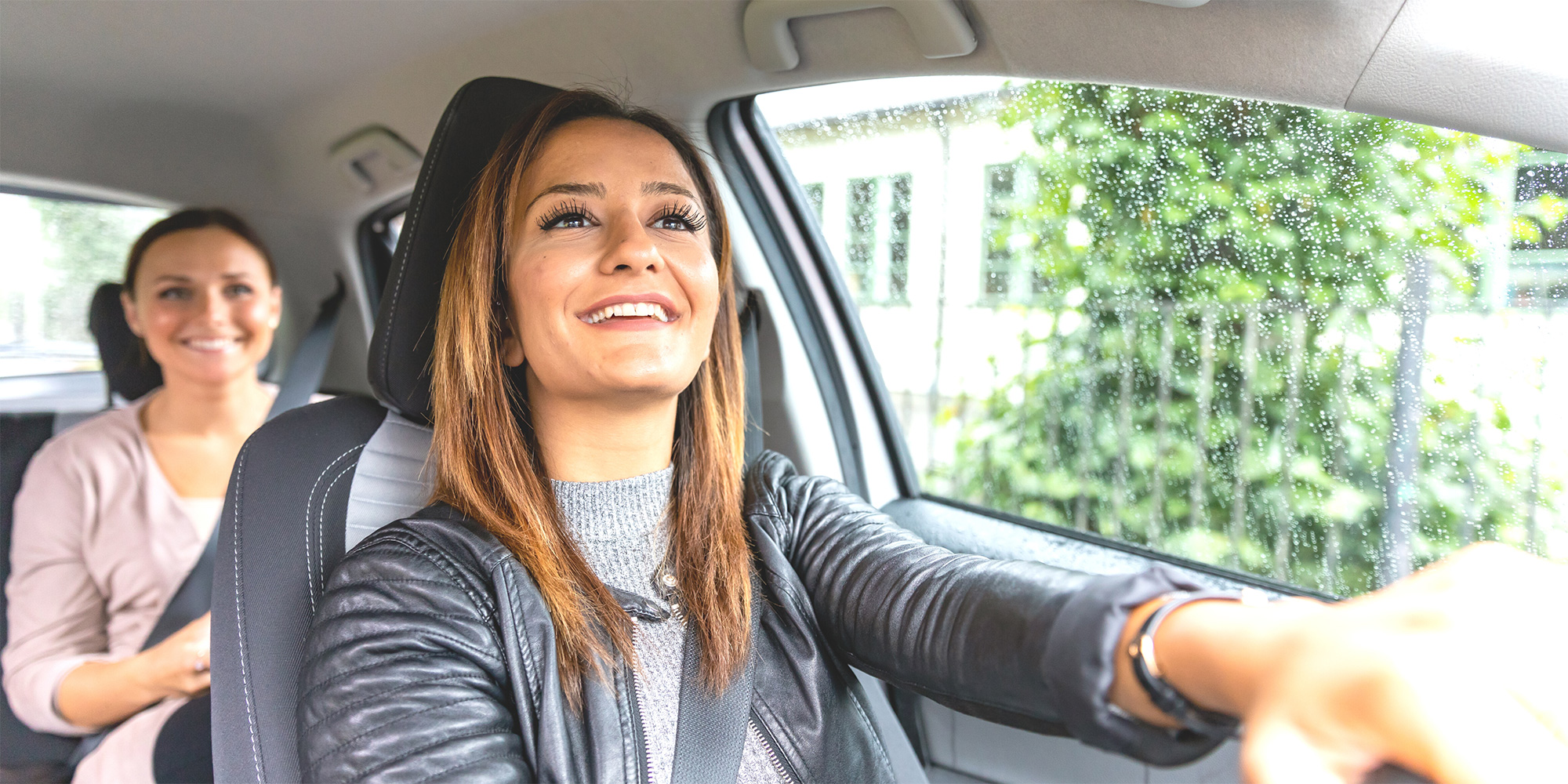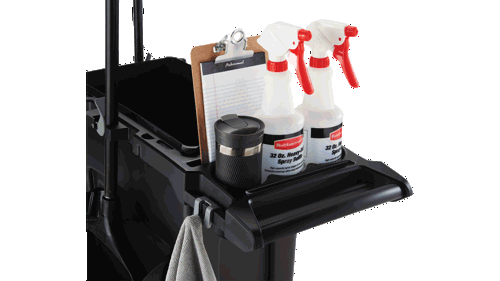
Rideshare services; such as Uber, have taken the world by storm, especially in recent years. They have overtaken taxis and large portions of the transport industry due to their convenience to city residents and tourists. Though, as they serve large numbers of passengers, they can become infection-infested, particularly if they aren’t cleaned regularly. Fortunately, there are many things that rideshare operators can do to ensure their vehicle remains are infection-free as possible.
At Rubbermaid Commercial Products, the team is passionate about keeping infections out of facilities and shared services. For this reason, the following blog explores in-depth how rideshare operators can use the appropriate cleaning tools and infection-control strategies to guarantee they are keeping their customers safe. Implementing these infection-control protocols can also show passengers that you are doing your part to keep them protected. As such, it can boost ratings on rideshare apps, which can help you take on more customers.
The Rubbermaid cleaning tips for Rideshare Drivers include:
First impressions matter - Keep the exterior of your vehicle clean and infection free
Rideshare operators must make a good first impression. Doing so can not only help them receive better ratings, but passengers will subconsciously associate this with their safety. Having the exterior of the car washed at least once every two weeks can remove any pathogens from the surface. This includes those pathogens carried by the wind and those transferred through physical contact.
A dust and dirt-free vehicle will also show that you care about your passenger’s experience. It will help them form a good connection with you, even over a short trip, which can improve your ratings.
If you operate a large vehicle, you can use a Mobile Two Step Stepstool to reach the top of your car and other hard-to-reach locations. You can also use our Double Pail to hold cleaning solutions, cloths and water. This can speed up the efficiency of your exterior cleaning as everything you need will be in one place. It is also beneficial in times when there are water restrictions, and you are unable to use a garden hose to remove pathogens and bacteria from your car’s exterior. 
Create an infection-free vehicle by wiping down seats every two hours
Rideshare operators will experience a high volume of passengers, especially on weekends. Though it can be impractical to wipe down all seats after each use, the Rubbermaid Commercial team recommends that seats are cleaned and sanitised at a minimum of once every two hours. This can remove any contaminants from passenger clothing, hands and skin which may make their way into the vehicle. Rideshare operators should also take the time to sanitise high touchpoints when cleaning the seats. This includes but isn’t limited to window buttons, interior door handles and seatbelt buckles.
Rideshare operators can also achieve a higher level of cleanliness by using a Rubbermaid Hygen Microfibre Cloth, which specialises in picking up 99.9% of pathogens, rather than spreading them across a surface. These can be reused throughout the day and work effectively with your choice of cleaning solution or sanitiser.
Should a rideshare driver notice that a customer may have soiled hands, be eating in the vehicle, or is feeling unwell, it is recommended to sanitise directly after they exit the vehicle. Even if it hasn’t been two hours since the last clean, this can remove contaminants, which may make other passengers sick.
Provide bins to prevent the chance of infections spreading throughout the vehicle
This is particularly important for passengers taking longer journeys in rideshare services. During these trips, they may utilise sanitary equipment, such as tissues. Should this make contact with the car, it can place future passengers at risk of infection. Providing a small bin with liner in the front and back seat can ensure passengers always have somewhere to dispose of their waste. This can also reduce the chances that passengers leave behind waste, like bottles, used tissues and cans, for you to clean.
To prevent bacteria from growing in the car; this rubbish must be thrown out at the end of each shift. Rideshare drivers can use outdoor bins or a designated indoor BRUTE Utility Bin with a lid; somewhere in their garage or shed. Using this system can also prevent foreign bacteria from entering the home. Just be sure to use gloves when emptying bins to prevent skin contamination.

Provide sanitary supplies to passengers to promote positive infection control
Most passengers who utilise your rideshare services want to ensure your vehicle remains clean and infection-free. Supplies like sanitiser, tissues and wipes can help people clean any mess they may have created. They can also use the supplies to sanitise the seat or high touch points before touching them to protect themselves against bacteria. This is especially important in the ongoing COVID pandemic.
If you don’t have suitable storage areas for these supplies, you can utilise a BRUTE Executive Series Caddy Bag. Hanging this on the back of the passenger or driver's seat provides plenty of opportunities for customers to help themselves to infection control supplies.
Helping keep rideshare drivers on the road
At Rubbermaid Commercial Products, we know it can be risky to operate a rideshare service, specifically in peak infection periods. We are passionate about helping keep drivers and their passengers safe and are always happy to chat about what we can do to elevate your infection control protocols.
Chat with us today to learn more.